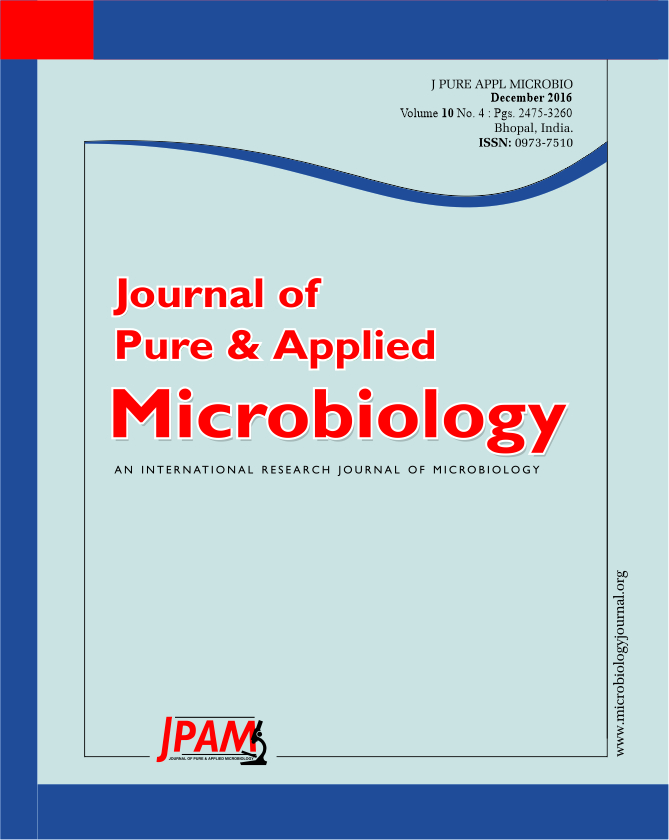Plant growth promoting rhizobacteria prove a key to sustainable agriculture provided they effectively colonize roots, survive, proliferate in the rhizosphere and enhance plant growth by a variety of mechanisms. In the present study, several samplings were conducted in different apple growing regions of Himachal Pradesh in order to isolate a strain capable of showing multifarious plant growth promoting activities and antagonism against Dematophora nectarix a major apple plant pathogen. In this research five isolates of fluorescent Pseudomonas sp. were isolated from apple rhizosphere. Out of five isolates, one isolate DE-18 was selected on the bases of high production of PGP activities and was identified by 16S rRNA gene sequencing. The isolate DE-18 showed maximum phosphate solubilisation and siderophore production of 425 µg/ml and 42.18 %SU respectively. Among the five isolate, DE-18 showed production of both protease (40 mm) and chitinase (28 mm). The isolate DE-18 also showed antagonism against Dematophora nectarix (38.46%) and Phytopathora cactoram (36.18%) and can act as Bioprotectant. The 16S rDNA based phylogenetic analysis demonstrated that the isolate DE-18 belonged to the Pseudomonas putida and sequence was deposited in the GenBank nucleotide sequence databases under accession number KU139388.
PGPR, Pseudomonas putida, Dematophora nectarix, Biocontrol efficacy.
© The Author(s) 2016. Open Access. This article is distributed under the terms of the Creative Commons Attribution 4.0 International License which permits unrestricted use, sharing, distribution, and reproduction in any medium, provided you give appropriate credit to the original author(s) and the source, provide a link to the Creative Commons license, and indicate if changes were made.


